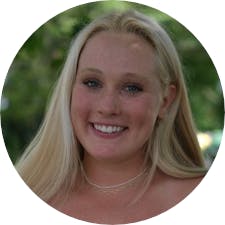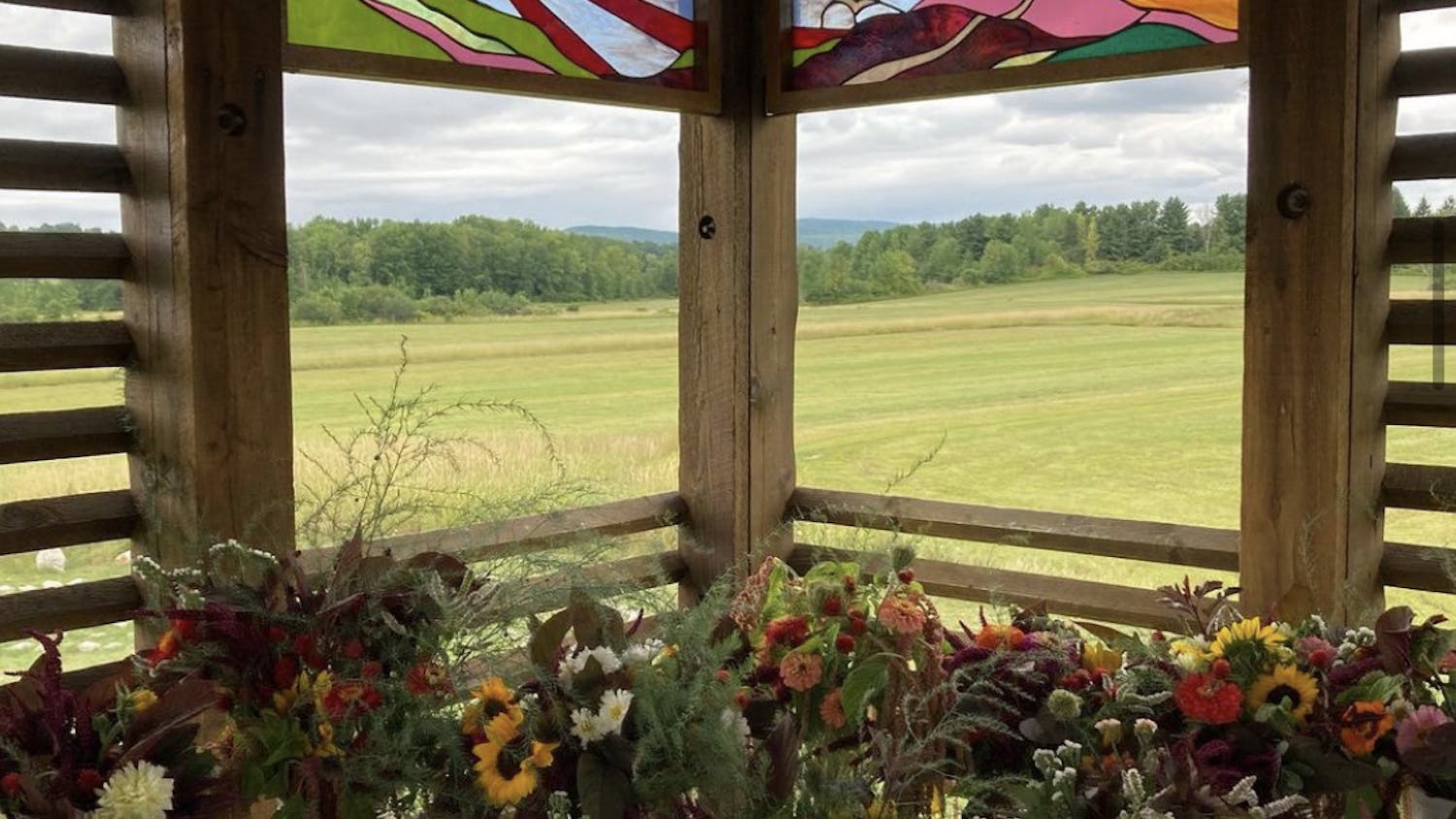Middlebury welcomed two alums, Sandhya Subramanian Douglas ’93 and Soyibou Sylla ’20, back to campus on Nov. 14 to give a talk on “Applying Sustainability and Environmental, Social and Governance (ESG) Factors in the Capital Markets.” This was the first installment of the Global Sustainability Alums Speaker Series co-sponsored by Franklin Environmental Center at Hillcrest, Rohatyn Center for Global Affairs, Climate Action Capacity Project and the Center for Careers and Internships (CCI). The series tracks sustainability across financial, entrepreneurial, political, activist and corporate sectors and offers Middlebury alums an opportunity to share their work with the college community.
Douglas graduated from Middlebury with a dual degree in economics and theater. She currently serves as the senior managing director, partner and director of strategic analysis and implementation at Wellington Management Company LLP (WMC), one of the first investment management firms to integrate climate science with asset management. WMC collaborates with Woodwell Climate Research Center (formerly Woods Hole Research Center), a think tank based in Falmouth, Mass., to analyze the effect of climate change on capital markets and imagine new opportunities for their clients.
Sylla joined WMC after graduating from the college with a degree in mathematics and chemistry. As an investment science associate, Sylla uses alternative data and statistical modeling to support investment decisions and works closely with the firm’s ESG research team.
During the first segment of the lecture, co-moderators Amanda Frank ’23.5 and Sam Sullivan ’23 asked presenters to reflect on their experiences at Middlebury, professional track record and transition into the sustainability space.
Douglas said her journey began as an effort to connect equity and justice issues with climate change and to reimagine the role of sustainability in the corporate setting. She identified the three “levers” needed to effect change in global communities: science/technology (STEM), policy and capital markets.
“I work in an industry that does move a lot of capital around and we have the power to really influence structural change in communities,” Douglas said. “We don’t sit just in the capital market, we sit at the intersection of policy. Policy and capital markets go hand-in-hand. And so much of where we invest our clients’ money is also driving technology changes.”
WMC manages over $1 trillion in assets, including pension plans, endowments, college endowments and charitable foundations.
“That money gives us a lot of ability and power as stakeholders in these companies to create change,” Douglas said. “So one of our primary ESG and sustainability principles at Wellington is to increase engagement over divestment. Divestment matters when engagement isn’t possible, but engagement is a much more powerful way to create change.”
Douglas said ESG integration is an intentional strategy to promote sustainability and climate justice, while continuing to uphold client interests and pursue investment opportunities in the market.
“ESG integration is not a political agenda on our behalf,” Douglas said. “It’s really about increasing values and ensuring better investment outcomes for our clients. Both the risks and the opportunities that exist in the transition from fossil to renewable economy — those risks, if we don’t materially evaluate and incorporate them into how we’re investing our clients’ money, it’s not going to create great outcomes.”
In the next stage of questions, Douglas and Sylla discussed the importance of diversity, equity and inclusion in fostering an inclusive environment at WMC.
“As a Black person who comes from a country that is still recovering from years of colonization and exploitation, I didn’t think I had a space in finance,” Sylla said. Sylla was born and raised in Senegal before moving to the United States for college.
“I’ve always questioned the usefulness of finance in the world,” Sylla said. “I still can’t say I don’t question it anymore, but I definitely have a lot more perspective and a much more nuanced view.”
According to Douglas, diversity, equity and inclusion initiatives are integral to WMC’s mission as an investment management firm and to expanding opportunity pipelines for prospective employees in the field.
“If you’re constantly looking for those opportunities through the same lenses, you’re going to run out of opportunities,” Douglas explained. “So you need to expand the set of perspectives that come together to help identify new ways to help our clients achieve their outcomes.”
The third stage of the lecture focused on sustainable development and investment strategies for tackling the “eight-headed crisis” — climate change, public health, water and stable food supply, biodiversity loss, social and racial injustice, trust in institutions and international trade, geopolitical tensions, and technology — before moving to questions from the audience.
“One thing for all of us to remember is that these kinds of beings, structural societal changes — they’re not a straight line up to the right. It’s a journey,” Douglas said. “But it’s really important to take a step back and look at the big arc… the arc of history bends towards justice.”

Brinlea La Barge '23 is the senior news editor.
She previously served as news editor and sports editor. La Barge studies English and Linguistics at Middlebury and is a peer writing tutor and captain of the women's tennis team.
She spent the summer of 2022 as a communications intern for the Josh Shapiro for Governor campaign, and previously worked for Nantucket Magazine and WHYY, Philadelphia's local PBS and NPR affiliate.


